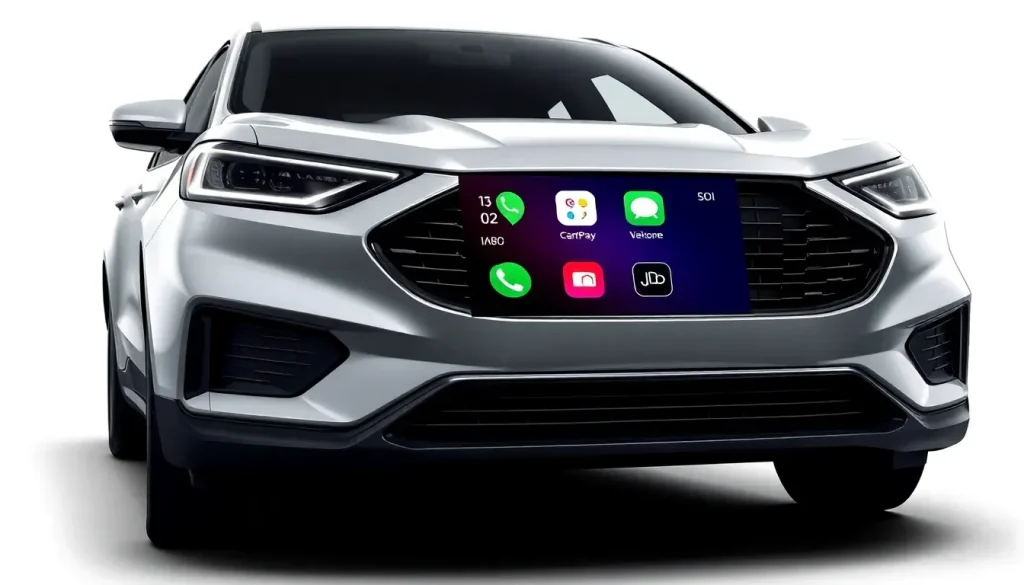Ford evaluates CarPlay Ultra's current value and future potential

As technology continues to evolve, so do the systems that integrate our devices with our vehicles. One of the most talked-about advancements is Apple CarPlay Ultra, which promises to enhance the in-car experience significantly. However, not all automakers are on board with this latest offering. Ford's recent statements highlight the complexities and challenges surrounding this new technology.
- Understanding Apple CarPlay Ultra
- Ford's Perspective on CarPlay Ultra
- Concerns Over Vehicle Control and User Experience
- Comparing Apple and Google Automotive Solutions
- Challenges Facing Traditional Automakers
- Potential for Future Collaboration
- Other Automakers' Reactions to CarPlay Ultra
- What Lies Ahead for In-Car Technology?
Understanding Apple CarPlay Ultra
Apple CarPlay Ultra represents an evolution of Apple's in-car integration system, designed to offer a more seamless and immersive experience for drivers. Unlike its predecessor, which primarily mirrored the iPhone's interface on vehicle displays, CarPlay Ultra aims to integrate more deeply into a car's native systems and potentially control various vehicle functions.
This updated version intends to leverage multiple screens within the vehicle, allowing for a richer interaction with apps and services. While the full capabilities of CarPlay Ultra are still emerging, its vision indicates a future where drivers can interact with their vehicles in ways that extend beyond basic navigation and audio playback.
Ford's Perspective on CarPlay Ultra
Ford CEO Jim Farley has been vocal about his company's stance on CarPlay Ultra. Despite previous commitments to Apple CarPlay, Farley expressed skepticism about adopting the new iteration at this time. He highlighted that Ford is still evaluating the practicality and effectiveness of this technology.
Farley stated, "We don't like the execution in Round 1 of Ultra, but we're very committed to Apple." His comments suggest that while Ford respects Apple's innovation, they find the current implementation lacking.
Concerns Over Vehicle Control and User Experience
A central concern for Ford lies in the control and experience within the vehicle. Farley pointed out that if Apple intends to manage all aspects of the in-car experience, it could lead to complications. He remarked, "If Apple wants to do that, I think we're going to have a tough time with that," suggesting that Ford may prioritize creating a unique user experience over adopting external systems.
- Advanced Driver Assistance Systems (ADAS) integration is crucial for Ford.
- Companies often require specific functionalities, such as disabling company cars after hours.
- Ford aims to balance technological integration with user control and safety.
Comparing Apple and Google Automotive Solutions
Farley has indicated that Ford may find Google’s automotive solutions more appealing than Apple’s. He noted that Google has developed a robust platform that includes Google Automotive Services and Android Auto, which Ford could potentially leverage.
This flexibility allows Ford to add features to Android Auto without fully committing to Google's ecosystem. As Farley put it, "So Ford could theoretically add features to Android Auto, yet not become required to adopt the whole Google car platform."
Challenges Facing Traditional Automakers
The automotive landscape is rapidly changing, with tech companies vying for a piece of the pie. Farley emphasized that U.S. manufacturers need to innovate and adapt faster, noting how companies like Huawei and Xiaomi have developed seamless systems that integrate technology in ways that U.S. firms have yet to achieve.
He described these Chinese systems as "amazing," highlighting the need for U.S. automakers to rethink their approach to technology integration. This serves as a reminder of the competitive pressure that traditional automakers are under from tech-forward companies.
Potential for Future Collaboration
Despite the skepticism surrounding CarPlay Ultra, Farley did not completely rule out future collaboration with Apple. His comments suggest that Ford is open to revisiting the technology once it matures and addresses current concerns.
Farley noted, "We just want it to be easy for customers," indicating that user experience remains a top priority. However, he also made it clear that any system that attempts to control vehicle functions too deeply could lead to friction between automakers and tech companies.
Other Automakers' Reactions to CarPlay Ultra
Ford is not alone in its hesitance towards CarPlay Ultra. Other manufacturers have echoed similar sentiments, expressing concerns about Apple’s potential overreach into their systems. For instance, executives from Renault have been quoted saying, "don't try to invade our own systems," demonstrating a unified front among some automakers against Apple's aggressive integration strategy.
This trend raises questions about the future of in-car technology and how it will evolve amid competing interests.
What Lies Ahead for In-Car Technology?
The future of in-car technology is uncertain, with key players like Apple and Google continually vying for dominance. As Ford and other manufacturers weigh the pros and cons of adopting systems like CarPlay Ultra, the industry must consider the balance between innovation and user autonomy.
The decisions made today could shape the in-car experience for years to come, making it imperative for automakers to stay ahead of the curve. The competition is not just about technology; it's about creating a user experience that feels intuitive and safe.
In summary, while Apple CarPlay Ultra promises an exciting vision for the future of automotive technology, significant challenges remain. Ford's cautious approach exemplifies the broader concerns within the automotive industry regarding control, user experience, and competition with tech giants.

Leave a Reply